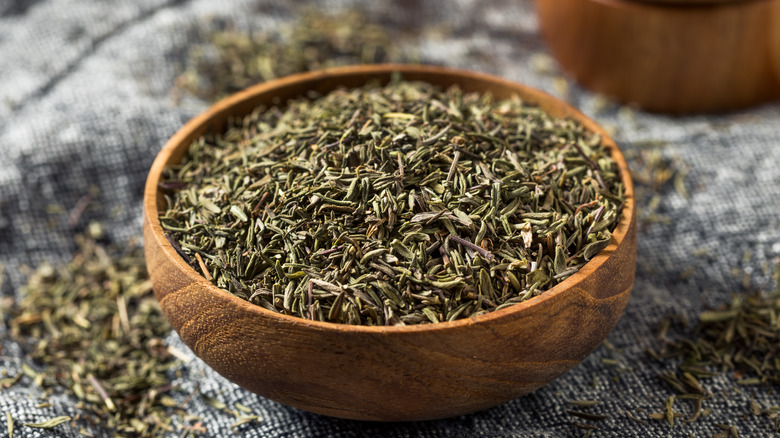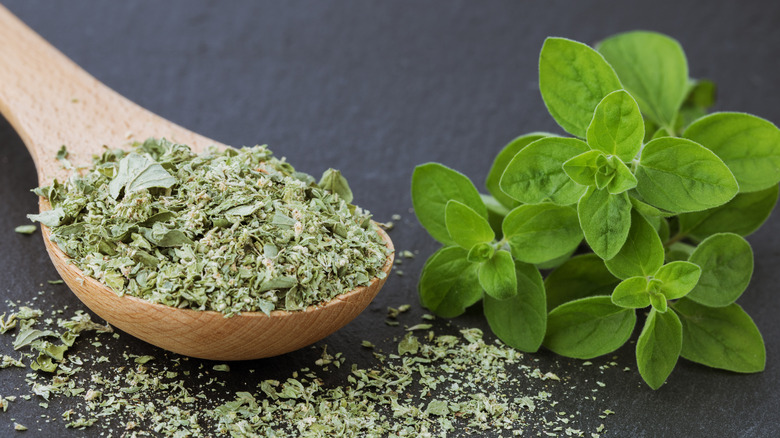The Best Substitute When You're Out Of Dry Thyme
If you've ever been following a recipe and discovered that even though you were sure you had all the listed ingredients, you happen to be missing one, you're familiar with the frustration that follows. Luckily with a little creativity, you can usually come up with a close substitute. Spices and herbs in particular are incredibly easy to swap out and often have a multitude of other spices that you can switch it with. Dried thyme is a common ingredient in many poultry dishes and creamy dishes, luckily if you ever discover you've run out of dried thyme, dried oregano makes for a great replacement.
Dried oregano has the same earthy, herbaceous flavor profile as dried thyme. One of the unique things that thyme brings to a dish is a light herbal, minty note. Oregano has the same quality, so you won't miss out on that hint of brightness in your dish. Both herbs belong to the mint family and are prominently found in the Mediterranean. One thing to be cautious of when using dried oregano in place of dried thyme is that some dried oreganos can have an intense flavor. If you're not careful, oregano can quickly overpower your dish. You don't want to use an equal amount of dried oregano for dried thyme to start, instead use a little less and taste to see if your dish needs more.
Other substitutes for dried thyme
One of the easiest ways to determine if a dried herb will work in place of dried thyme is to look for other herbs that belong to the mint family. This family of plants will have the flavor profile most similar to thyme. Sage is another member of the mint family that you can use. Sage has a little more of a sharper earthy flavor to it, so like oregano, you'll want to be mindful of how much you are using. Sage is also incredibly fragrant, so if you aren't looking to add that intense smell to your dish you might want to consider using a different option.
Marjoram is also a member of the mint family. It has a bit of a brighter taste compared to the other suggestions. Marjoram has a slight citrusy note, with hints of sweetness paired with the earthy bite of other herbs in the mint family. Marjoram is also slightly bitter compared to thyme, but it works great for dishes that have heavier components like cream or cheese. The bright note of marjoram cuts through richness with ease.

